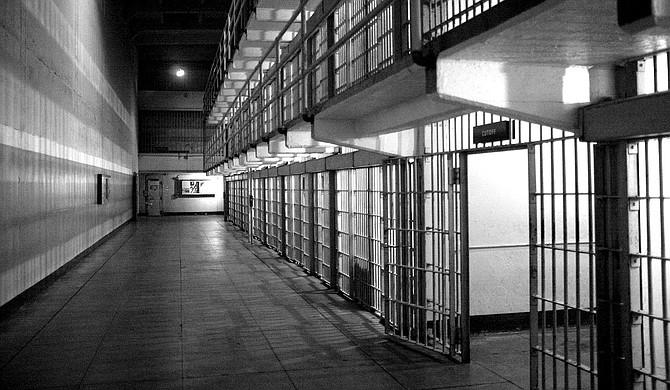The Sentencing Project, a national advocacy group that seeks to eliminate racial disparities in the criminal justice system, said in a 2020 report that more than 8% of adults in Alabama, Mississippi and Tennessee are disenfranchised because of criminal convictions. Photo courtesy Emiliano Bar on Unsplash
JACKSON, Miss. (AP) — A federal appeals court has agreed to review a Mississippi law that prevents people convicted of certain felonies from voting.
The full United States Court of Appeals for the Fifth Circuit will hear a case brought forward by the Mississippi Center for Justice challenging a Jim Crow-era provision of the 1890 Mississippi Constitution.
Mississippi Center for Justice attorneys say the provision was intended to stifle the vote of Black people, calling that a violation of the 14th Amendment.
“At a time when most states have repealed their disfranchisement laws, it is time to remove from Mississippi’s constitution this backward provision that was enacted with such a vicious purpose," said a statement from Vangela M. Wade, president and CEO of the Mississippi Center for Justice.
In November 2018, Florida voters adopted a state constitutional amendment to automatically restore voting rights to most convicted felons once they complete their sentences, with the exception of those convicted of murder or sex offenses. It was estimated to affect more than 1 million people.
The Sentencing Project, a national advocacy group that seeks to eliminate racial disparities in the criminal justice system, said in a 2020 report that more than 8% of adults in Alabama, Mississippi and Tennessee are disenfranchised because of criminal convictions.
The report also said Mississippi is one of seven states where more than one in seven Black people is disenfranchised, which is twice the national average.
The Mississippi Center for Justice filed the lawsuit against the Mississippi Secretary of State’s office on behalf of two Black men who lost the right to vote after being convicted of felonies.
Roy Harness is a military veteran who was convicted of forgery in 1986 during a period of drug addiction, according to the Center for Justice. After serving his sentence, he went on to earn a degree in social work from Jackson State at the age of 62.
Kamal Karriem is a former city council member in Columbus who was convicted of embezzlement in 2005. After serving his sentence, he became a pastor and one of the owners and operators of his family’s restaurant, according to the Center for Justice.
From the Civil War until 1890, Mississippi denied the right to vote to anyone convicted of a crime punishable by imprisonment in the state penitentiary.
But in 1890, Mississippi replaced its generic description of disenfranchising crimes with a list of specific crimes: “bribery, burglary, theft, arson, obtaining money or goods under false pretenses, perjury, forgery, embezzlement or bigamy.”
In 1896, Mississippi Supreme Court Justice Cooper wrote that the provisions were designed under the racist notion that Black people were more likely to commit crimes like burglary, theft, arson and embezzlement than white people. The violent crimes of robbery and murder, which Cooper contended were more likely to be committed by whites, were not included on the list.
The felon disfranchisement measure was one of several voting provisions in the 1890 Constitution designed to take the vote away from Black citizens who had obtained it during the Reconstruction period after the abolition of slavery and the end of the Civil War. The other discriminatory provisions, including the poll tax and the so-called understanding clause, were eliminated in response to federal court orders or by the federal Voting Rights Act of 1965.
The Mississippi Center for Justice first filed its lawsuit over the 1890 provision in 2017. Attorneys previously brought the case before a federal district judge in Jackson and a three-judge panel of the Court of Appeals, where it was denied.
Mississippi amended the 1890 provision in 1950, removing burglary from the list, and again in 1968, adding murder and rape.
When the district court decided in favor of the Secretary of State, the judge ruled that although Mississippi’s 1890 Constitution might have been motivated by unconstitutional racial animus, any illegal motivation was wiped out when Mississippi voters amended the disenfranchisement section in 1950 and 1968.
The Mississippi Center for Justice lawsuit does not seek to overturn the voting ban for those convicted of murder or rape. The lawsuit seeks to nullify only those crimes in the original list.



Comments
Use the comment form below to begin a discussion about this content.